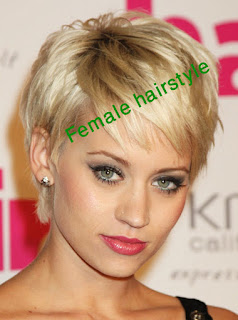Pop star Madonna was known as the
Material Girl, and many teenage girls and slightly older women copied her
fashion look. They had to vary their style, as Madonna changed hairstyles
frequently, although she usually wore her hair long. She wore it with a
slightly raised crown and curls along her shoulders; perfectly straight with a
variegated razor cut; in a long, very sleek bob; and in a straight, funky style
below the level of her shoulders, with rezoned layers of short hair near her
face and longer hair at the sides and back to her breasts.
Her hairstyles were
the trendiest of the decade. Varied hair colors, made popular by pop singer Cindy Lapper, induced many young women to experiment with dying their hair, and
some hair products allowed these women to change their hair color as often as
every day. Another look adopted by the young was “street style,” also known as
punk. It grew from the Goth look that represented a romantic vision of life
shadowed by death. Goths wore black clothes with white pancake-makeup skin, and
black dyed hair. The black hair was teased upward as far as it would go or gelled
flat with a shaved or painted widow’s peak. The slang word “punk” can mean
inferior or worthless, and the style arose as a revolt against the UN-styled, free-flowing
hair of the hippie generation. Hair was the most important feature of the punk look.
The scalp was often shaved with a “Mohawk” strip of hair running from nape to
scalp. This strip of hair could be bleached, died a bright color, and then gelled
into a tall fan that was startling in appearance. Impact The excesses of the 1980’s soon became modified, as the
stock market temporarily plummeted late in the decade and new environmental concerns
dominated the media and seeped into people’s consciousness. The “If you’ve got
it, flaunt it” attitude of the 1980’s was replaced by the “Less is more”
slogan of the 1990’s. The decade of flamboyance couldn’t last and evolved into a
simpler, less showy
decade.







